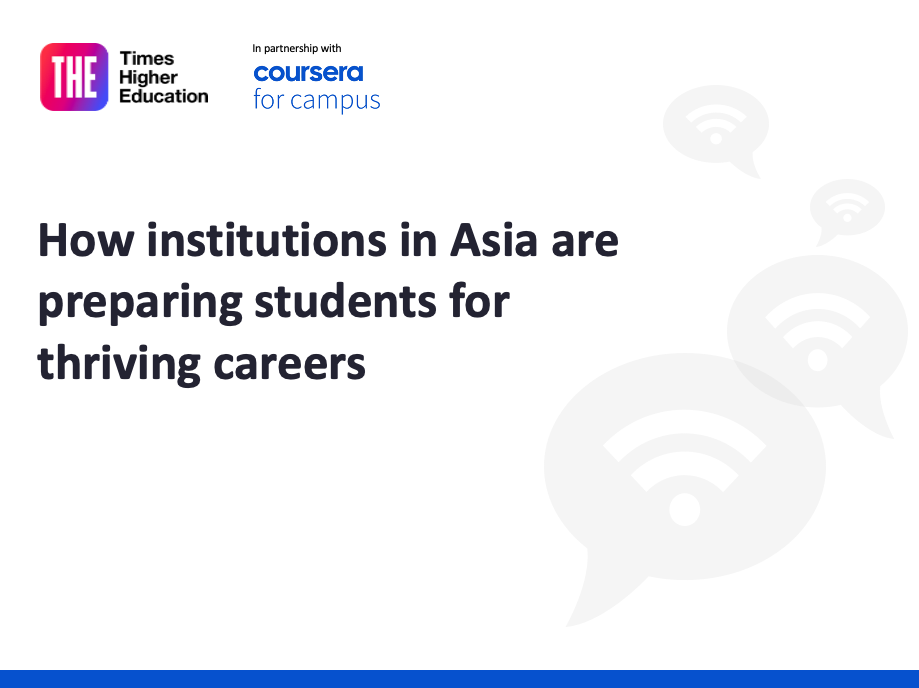Universities tend to identify skills in silos, which creates issues in equipping graduates with in-demand skills, said the panel at a Times Higher Education webinar, held in partnership with Coursera. Analysing employment trends and strengthening partnerships with industry are strategies universities can adopt to set graduates up for success in the professional environment.
The webinar panel featured senior academic leaders in the Asia-Pacific region, who discussed strategies and challenges to elevate graduate employability amid the evolving skill demands of the industry.
Indonesia shares similarities with Malaysia and Vietnam in terms of a disparity between the number of university graduates and available job opportunities, said Widodo, rector of the University of Brawijaya in Indonesia. The university has implemented strategies to enhance learning experiences, drive student engagement and strengthen students’ skills.
To improve employability and skills development, the university follows four steps, which include modernising the curriculum to match industry needs, offering students internships and other collaboration opportunities with industry, and equipping students with technical skills and soft skills, such as leadership and communication. Integrating relevant specialised courses enables institutions to personalise learning pathways and fill gaps in curricula, he explained.
Providing training to educators is vital to improve employment outcomes, said Bùi Phạm Lan Phương, vice-president of strategy and global engagement at Van Lang University in Vietnam. Varying skill levels among faculty can affect the quality of education, so it is important to bring everyone to the same high standard.
Identifying in-demand skills is crucial to formulating strategies and integrating courses that set graduates up to excel in their careers, said Abhimanyu Veerakumarasivam, provost and professor of genetics at Sunway University in Malaysia. Employers are looking for graduates who have the perfect blend of interpersonal skills and professional skills, he added.
Sunway University implements initiatives such as its multimodal Career Readiness Programme to help graduates plan their career goals early in their academic journey, explained Veerakumarasivam.
In January 2024, Coursera published its Job Skills Report 2024, highlighting the skills that are likely to trend in the future. The report enables universities to make judgement calls about developing their academic structures to deliver the skills of the future, said Eklavya Bhave, director and head of Asia at Coursera.
Coursera has released a repository of curated specialised courses by universities and companies, such as the Generative AI Academy, to equip graduates with future-ready skills and reduce faculty shortages, especially in evolving fields such as artificial intelligence, noted Bhave.
Strong university-industry partnerships are key to not only personalising learning pathways but also widening experiential learning opportunities for graduates. Bùi explained that having important stakeholders such as faculty, industry partners and students on board is central to understanding industry demands and student needs.
According to the panel, unequal access to courses can hinder advancements in graduate employability. Improving access to online courses and translating courses into local languages can help address strategic challenges such as faculty shortage and language barriers, concluded Bhave.
The panel:
- Eklavya Bhave, enterpise sales head for Asia, Coursera
- Bùi Phạm Lan Phương, vice-president, strategy and global engagement, Van Lang University
- Alistair Lawrence, head of branded content, Times Higher Education (chair)
- Abhimanyu Veerakumarasivam, provost and professor of genetics, Sunway University
- Widodo, rector, University of Brawijaya
Watch the webinar on demand above or on the THE Connect YouTube channel.
Find out more about Coursera.


comment